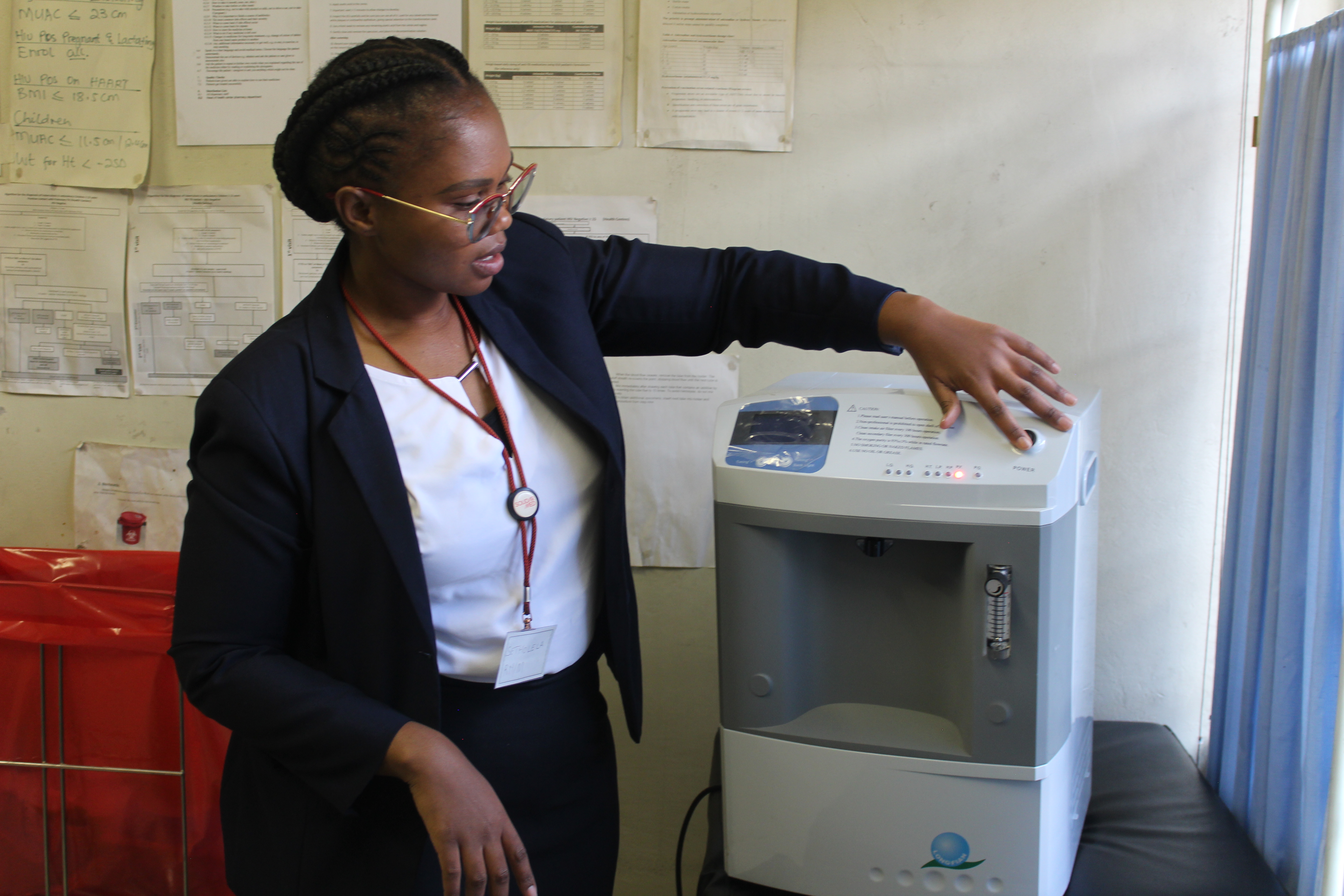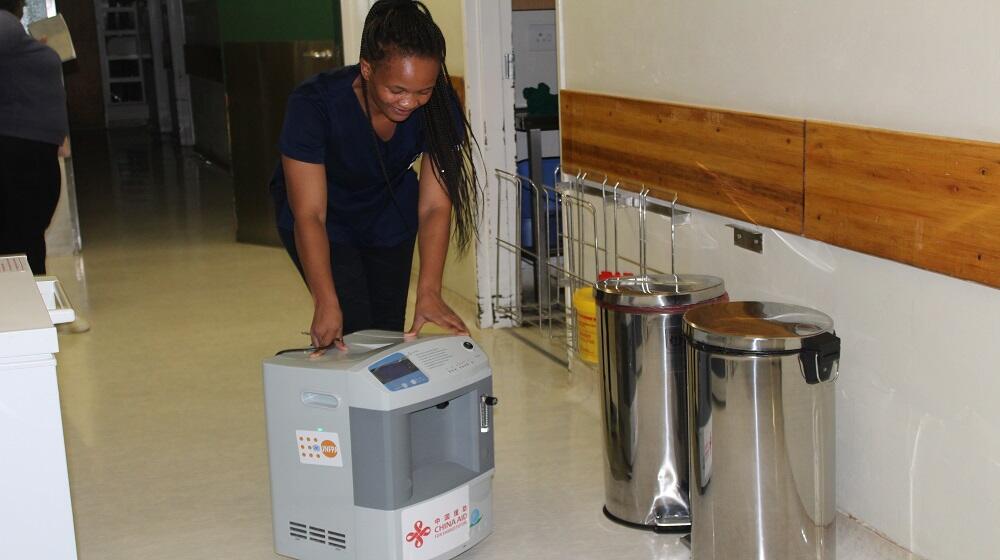She left her home at Motsekuoa in the Quthing district at the crack of dawn when her labour pains started. But due to the intense contractions and labour pains, she had to take many resting stops, and only reached the Dilli Dilli Health Centre late in the afternoon.
‘Marethabile * (23) delivered her baby boy within 30 minutes of her arrival at the health centre, but due to the prolonged labour, her baby had inhaled meconium - a new-born’s first poop, which can prevent a baby from breathing properly, causing respiratory distress.
 According to a Nurse Midwife who helped deliver the baby, Sister Relebohile Sebusi, the baby had developed meconium aspiration syndrome – which happens when a new-born has trouble breathing because meconium got into the lungs. The Nurse Midwife explained that she had to use an Oxygen Concentrator -a medical device that helps a person take in oxygen if he/she has a condition that affects the lungs- to resuscitate the new-born.
According to a Nurse Midwife who helped deliver the baby, Sister Relebohile Sebusi, the baby had developed meconium aspiration syndrome – which happens when a new-born has trouble breathing because meconium got into the lungs. The Nurse Midwife explained that she had to use an Oxygen Concentrator -a medical device that helps a person take in oxygen if he/she has a condition that affects the lungs- to resuscitate the new-born.
“If we did not have the oxygen concentrator, we could have lost that baby,” Sister Sebusi said as she narrated to journalists how the health centre has benefitted from Oxygen Concentrators that have been provided under a project in which, UNFPA, the United Nations Population Fund has, through the support of China International Development Cooperation Agency (CIDCA) supplied.
‘Marethabile’s son is now a healthy nine months old, who often comes to the clinic for post-natal care.
At Molikaliko Health Centre, the Nurse in Charge Sister ‘Mabokang Damane Ntsie explained that they nearly lost a baby whose epileptic mother was not cooperative during delivery. “It was my first time to come across a mother with that condition. He baby was born eventually, but he did not make the first cry.”
She said she used all her midwifery skills to resuscitate the baby without success, until she used an oxygen concentrator to administer oxygen. “This saved the baby’s life. Today the family is happy and they are always thankful whenever they are here at the clinic,” she added. She further noted that, pregnant women with epilepsy and unstable blood pressure often require oxygen supplementation.
A Nurse Midwife at Quthing hospital said she has been able to save many infants' lives in the maternity ward in Quthing government hospital through the use of the Oxygen Concentrators.
Sister Mampolokeng Nkoja stated that they often use the oxygen concentrators to resuscitate both mothers and their babies. “Sometimes when there are complications, the mothers tend to faint. That is when we also use Oxygen concentrators to resuscitate.” She added.
She explained that if the unborn baby does not receive sufficient oxygen supply, there is a risk of death inside the mother’s womb, adding that in cases where the heartbeat is low, it may eventually cease altogether, resulting in the death of the baby.
“A lot of babies could have lost their lives had it not been because of the oxygen concentrators. They are also very useful when we have cases of pre term labour,” she stated, adding that the oxygen concentrators procured through support from the CIDCA project are also user friendly as they are mobile, unlike the oxygen cylinders that they previously used.
The oxygen concentrators were among the health commodities procured by UNFPA on behalf of the Ministry of Health in the Kingdom of Lesotho, through the support of China International Development Cooperation Agency as well as personal protective equipment for medical workers, some life-saving devices, contraceptives and other sexual and reproductive health supplies.
The support, valued at US$500,000 was aimed at helping the government of Lesotho at the beginning of the COVID-19 pandemic and beyond, to ensure health care workers have the supplies and equipment they need to deliver care safely and for family planning commodities, information and counselling services including emergency contraception.


